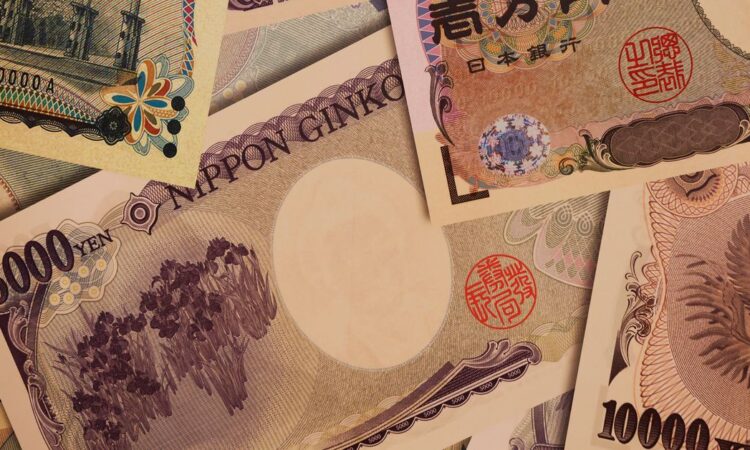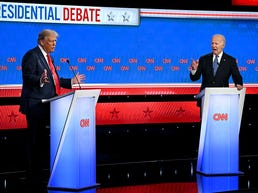
[1/2]FILE PHOTO-Examples of Japanese yen banknotes are displayed at a factory of the National Printing Bureau producing Bank of Japan notes at a media event about a new series of banknotes scheduled to be introduced in 2024, in Tokyo, Japan, November 21, 2022. REUTERS/Kim Kyung-Hoon
LONDON June 28 (Reuters) – U.S. stocks were poised to open lower on Wednesday pressured by reports of a possible curb on U.S. tech exports to China, while investors awaited comments from Federal Reserve Chair Jerome Powell to gauge the path for interest rates.
Shares of chip companies Nvidia (NVDA.O) fell as much as 4.6% in premarket trading, while Advanced Micro Devices (AMD.O) dipped 3.5% after the Wall Street Journal reported the Commerce Department was mulling stopping shipments of artificial intelligence (AI) chips made by these companies to China as early as July.
Treasury yields inched higher on the strength of U.S. data, combined with hawkish commentary emerging from Portugal at a gathering of central bank heavyweights that include Federal Reserve Chair Jerome Powell, European Central Bank head Christine Lagarde and Bank of Japan Governor Kazuo Ueda.
“In Europe, the data has to evolve to avoid a hike in September rather than the other way around,” said James Rossiter, head of global macro strategy at TD Securities in London.
Rossiter noted how European Central Bank policymaker Martins Kazaks said on Tuesday that in order for the ECB to pause rate hikes in September, the region would need to see a sustained fall in inflation over the coming months.
“Maybe we’ll see some successes on inflation here and there, but it just won’t be enough,” said Rossiter.
European inflation and rate hike hints from the Portugal meeting were also a focus for Tim Graf, head of EMEA macro strategy at State Street Global Advisors.
“Unless you get some big exogenous shock between now and the next ECB meeting, they’re going to hike rates again,” he said.
Across the Atlantic, the U.S. economy continues to show resilience in the face of tighter monetary conditions, he added.
“Recession probability models in the U.S. project a 55-70% to 65-70% probability we’ll get a recession in the next 12 months. But we’ve been hearing this for the last 12 months, and it’s not here,” said Graf.
A broader bullish sentiment helped MSCI’s broadest index of global shares tick up 0.2%. (.MIWD00000PUS) at 1134 GMT.
U.S. money market futures now imply around a 77% chance of a hike to 5.25-5.5%, and slightly more risk of a further move to 5.5-5.75%, which nudged short-term Treasury yields higher.
EURO ON THE RISE
Bond yields also moved sharply higher in Europe after a bevy of central bankers sounded hawkish on inflation and warned rates would likely have to stay higher for longer.
Markets imply a 90% probability of an ECB rate hike to 3.75% in July and a peak around 4.0%.
That underpinned the euro against the dollar at $1.095 , while keeping it near a 15-year peak of 157.98 yen .
The dollar had hit a near eight-month top of 144.26 yen , before easing back to 144.15 as Japanese officials again protested against the yen’s weakness.
Japan’s top currency diplomat Masato Kanda on Wednesday warned against further falls in the yen, saying authorities would take an appropriate response if moves became excessive.
Markets are wary in case Japan intervenes to buy the yen as it did last October, which knocked the dollar down from 151.94 to as low as 144.50 in a matter of hours.
In commodities, gold slipped past a four-month low to $1,905.35 an ounce .
Oil prices edged up after data showed a larger-than-expected draw in U.S. crude and gasoline inventories, but they remain uncomfortably close to lows for the year so far.
Brent lay flat at $72.24 a barrel after dropping a dollar from earlier highs, while U.S. crude was also largely flat at $67.67.
Reporting by Nell Mackenize;
Editing by Amanda Cooper, Kim Coghill, Conor Humphries and Chizu Nomiyama
Our Standards: The Thomson Reuters Trust Principles.






